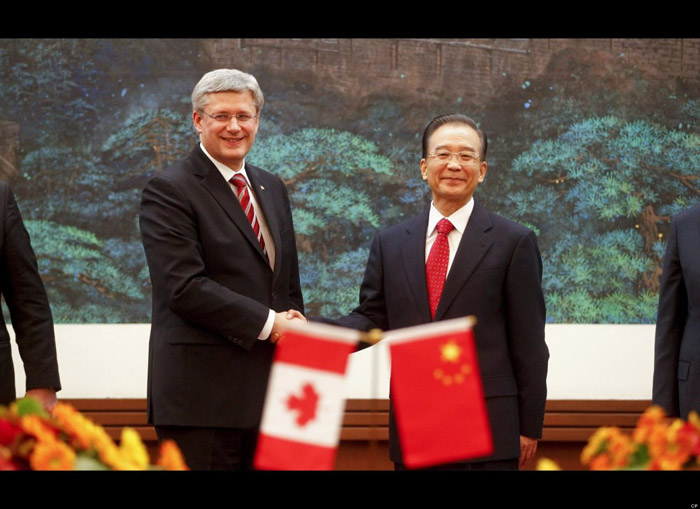Two years after the signing of the Foreign Investor Protection Agreement (FIPA), and over a month since it’s ratification, a small but vocal number of Canadians continue to cry out about the FIPA’s supposed perils. The Green Party has described it as an attack on our nation’s sovereignty, progressive publications have claimed that it would make us victim to 19th century colonialism, and a recent piece in the McGill Daily analogized the bill’s signing to Hitler’s Germany. These critics have lost touch with reality.
Granted, the FIPA does undermine Canadian sovereignty, but so do the Convention on Cluster Munitions of 2008 and the Abolition of Forced Labour Convention of 1930. By its very nature, an international agreement is a compromise by countries to concede part of their sovereignty in a mutually beneficial exchange. Calling the agreement ‘undemocratic,’ which some on this campus have done, is equally nonsensical as the Harper government has received an electoral mandate in 2006, 2008, and most recently a majority in 2011. The Liberal Party, hardly a Conservative ally, are in support of the FIPA. Even the New Democratic Party won’t commit to categorically rejecting the agreement, insisting that they would only revoke it “if it is not in the best interests of Canadians.”
Some claim the agreement would allow Chinese corporations to act above the law and pillage the Canadian economy without restraint, derived from Article 3: “Each [country] shall encourage investors of the other [country] to make investments in its territory and admit such investments.” Unfortunately, it seems they didn’t bother to finish the sentence: “In accordance with its laws, regulations, and rules,” amongst which is the Investment Canada Act. Article 4 promises “fair and equitable treatment and full protection and security,” which is contingent on being “in accordance with international law,” the same kind of legal relationship we share with our North American Free Trade Act (NAFTA) partners.
Nor are these exceptions limited to existing regulations. The claim that it would allow Chinese corporations to block future environmental regulations against its interests is unfounded. Article 33 states in no uncertain terms that “nothing in this Agreement shall be construed to prevent a Contracting Party from adopting […] environmental measures […] necessary to protect human, animal or plant life or health; or […] the conservation of living or non-living exhaustible natural resources.” Canada is at perfect liberty to prohibit or restrict any activities it deems necessary, it just can’t ban Chinese companies while giving preferential regulations to Canadian ones.
Others complain that the FIPA will give Chinese companies the right to sue the Canadian government for billions in damages. This right is shared by all Canadians, companies in NAFTA ,and the Comprehensive Economic and Trade Agreement (CETA), and the countries in dozens of other FTA-signed agreements. On what basis are we supposed to deny this privilege to China? Allegations that these proceedings are held in secret also hold no water, as Article 28 states, “all documents submitted to, or issued by, the Tribunal shall also be publicly available” and “hearings held under this Part shall be open to the public.” The FIPA is so transparent it allows you to go and attend the trial.
Outrage that these hearings will be presided over by an independent arbitration panel instead of a Canadian court display a gross misunderstanding of how trade law works. This is the same process by which the United Nations settles disputes for the simple reason that having the hearing in one country versus another carries with it an undeniable presumption of bias. On the flipside, how do you like the sound of “Barrick Gold Corp. v. The People’s Republic of China” as overseen by the Politburo of the Communist Party? In this sense, criticizing the benefits that Chinese companies receive completely misses the whole point of the deal—that every one of those benefits will be guaranteed to Canadian companies as well.
Canada currently runs an annual trade deficit of $30 billion with China—encouraging its investors and guaranteeing the safety of their assets is the way to start narrowing that gap. China’s economy contributes more than 15 per cent of world GDP and growing, but less than two per cent of total foreign direct investment in Canada. If Canadians want a brighter economic future they need to start re-orienting towards where the future is going to be, and the FIPA is how to start.








http://www.macleans.ca/politics/ottawa/canada-china-investment-big-risk-in-the-fine-print/